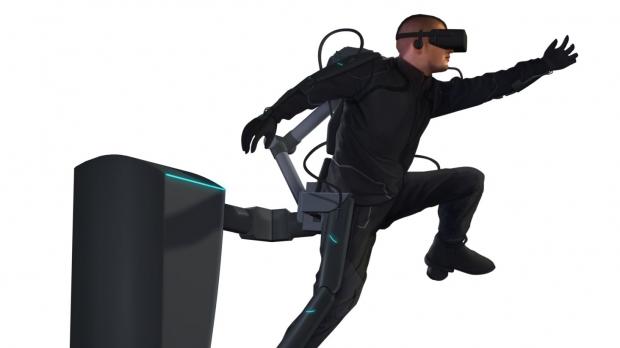A research team comprised of members from Virginia Tech, University of Florida, and HaptX recently received a $1.5 million grant from the National Science Foundation's National Robotics Initiative to fund the development of a full-body haptic feedback suit for use in VR and robotics applications.
The project, dubbed ForceBot, will use HaptX's microfluid touch feedback system, which HaptX developed for its HaptX Gloves product. The microfluid touch technology enables HaptX to create highly detailed haptic simulations that simulate the shape, weight, and texture of virtual objects. ForceBot will use that technology to simulate both active and passive constraints on the wearer.
"ForceBot will advance knowledge at the convergence of virtual reality, robotic control, sensory feedback, ergonomics, and human factor fields," said Dr. Alexander Leonessa, Principal Investigator, Virginia Tech. "We're excited to create a system that increases immersion for VR users in applications requiring intensive body motions like sports and industrial skills training, gaming, emergency response, and many others."
ForceBot will support VR use cases, but the project is not strictly a VR accessory. The research team intends to use ForceBot technology in the robotics industry and exoskeleton development. The research project is scheduled to take four years to complete.



